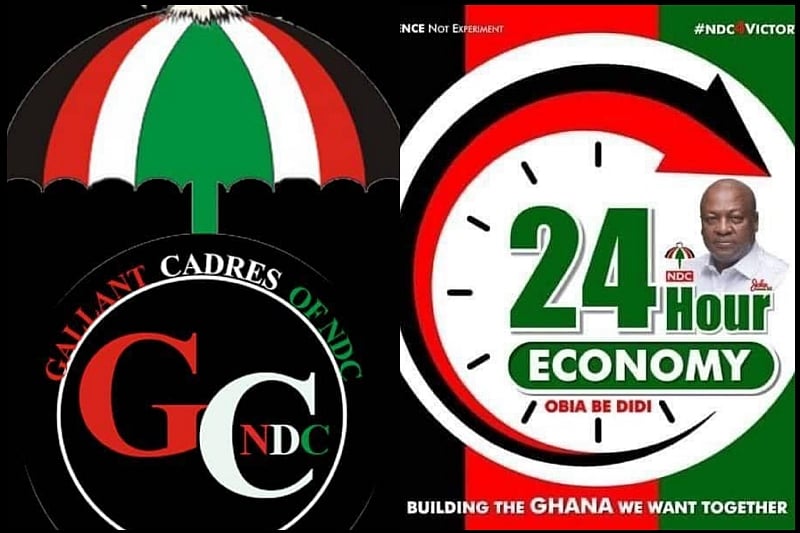The National Democratic Congress (NDC) affiliated Gallant Cadres have issued a compelling appeal to Ghanaian youth, urging them to embrace the government’s 24-Hour Economic Policy. This initiative, they argue, represents a pivotal shift in Ghana’s economic trajectory, promising to significantly reduce the nation’s reliance on traditional working hours and imported goods while simultaneously unlocking its potential for enhanced productivity and innovation. The Cadres believe this policy offers a unique opportunity for young Ghanaians to engage in the economy and contribute meaningfully to national development. Their endorsement stems from a belief that this policy offers a robust and comprehensive solution to the pressing issue of youth unemployment, a challenge they see as demanding immediate and decisive action.
The Gallant Cadres, in a press release issued on July 6, 2025, emphasize the transformative potential of the 24-Hour Economic Policy. They highlight its strategic design to harness Ghana’s full economic capacity and provide much-needed employment opportunities for the burgeoning youth population. This call to action is grounded in the alarming statistics presented by the Ghana Statistical Service in June 2024, revealing that over 7.3 million Ghanaians are struggling with severe poverty, with an overall unemployment rate of 15% and a staggering 32% youth unemployment rate. These figures, the Cadres assert, underscore the urgency for innovative and impactful economic interventions, precisely what they believe the 24-Hour Economy represents.
The Cadres define the 24-Hour Economy as a system operating continuously, encompassing weekends and holidays, across key sectors such as manufacturing, healthcare, retail, transportation, logistics, ICT, tourism, and hospitality. This round-the-clock operation, they argue, will drive national productivity, attract both local and foreign investment, and crucially, widen the employment net, especially for young Ghanaians struggling to find meaningful work. The policy aims to stimulate demand for locally produced goods, potentially reducing Ghana’s reliance on imports, which include over GHS 2.6 billion in food, GHS 3.4 billion in grains, and GHS 2.4 billion in sugar. They see this as a direct response to the economic challenges facing the nation and a proactive measure to alleviate poverty and create a more inclusive economic landscape.
While acknowledging the potential hurdles in implementing such a broad-reaching initiative, the Gallant Cadres express unwavering confidence in President John Dramani Mahama and his administration’s ability to navigate these challenges and successfully implement the policy. They reiterate the core objectives: enhancing productivity, stimulating investment, and creating more job opportunities, particularly for young people. This confidence, coupled with their strong endorsement, underscores their belief in the policy’s potential to reshape the Ghanaian economy and positively impact the lives of its citizens, especially the youth. The Cadres’ appeal goes beyond mere support for a government policy; it represents a rallying cry for national unity and collective action towards a shared vision of economic prosperity.
The Gallant Cadres’ vision for the 24-Hour Economy extends beyond simply increasing working hours. They envision a system that promotes smarter work practices, leverages technological advancements, and ensures that every Ghanaian, particularly the youth, has a place within the economy regardless of the time of day. This, they believe, will create a more dynamic and inclusive economic environment fostering innovation and entrepreneurship. The policy, they suggest, necessitates investment in vocational and digital skills training to equip young people with the skills necessary to thrive in a 24-hour economy. This includes competencies in areas such as coding, artificial intelligence, digital marketing, and cybersecurity, aligning with global economic trends and positioning Ghanaian youth for success in the evolving job market.
The Gallant Cadres acknowledge the significant challenges that lie ahead, including the need for upgraded infrastructure, especially in the energy sector, public transportation, internet connectivity, and security. They recognize the necessity of revisiting existing labor laws to accommodate night shifts while ensuring worker protections, and the importance of addressing potential cultural resistance to a 24-hour economic model. They also highlight the critical role of ensuring safety and security for night-time operations, particularly in urban centers. Addressing these challenges, they argue, will require a collaborative approach involving government, the private sector, and the community at large. The Gallant Cadres stress the need for policy reforms, infrastructure investments, fiscal incentives from the government, and innovation in service delivery, logistics, and workforce management from the private sector. Public-private partnerships, they suggest, will be crucial in facilitating training programs, safety campaigns, and community sensitization to foster broad support and participation in the 24-Hour Economy. The Cadres’ call to action is a plea to all Ghanaians, particularly the youth, to embrace the 24-Hour Economy Policy as a collective mission to uplift the nation’s economy and transform the trajectory of youth employment. They envision a future where this initiative serves as a catalyst for a more resilient, inclusive, and future-ready Ghana, positioning the country as a regional economic powerhouse built on the strength and potential of its young people.


